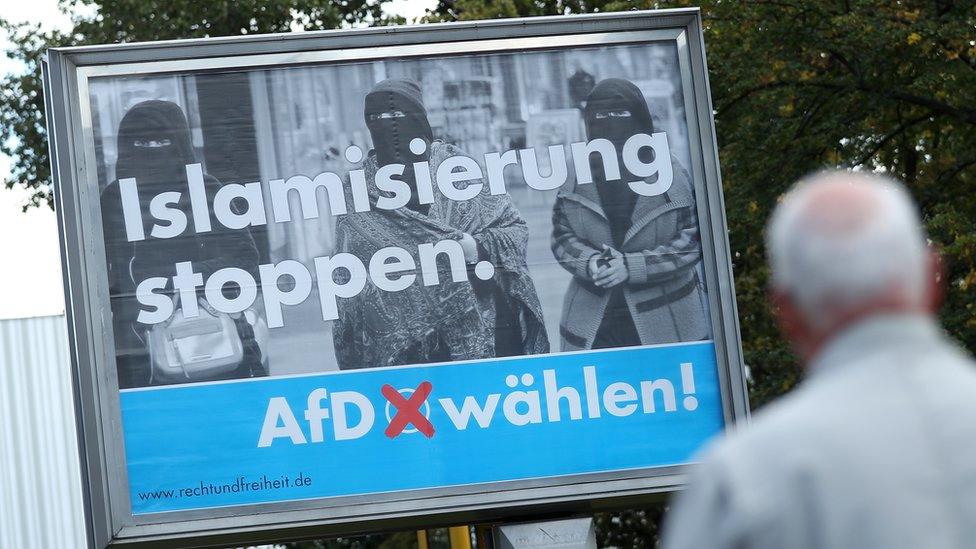Germany coalition: Merkel's 'political party poker'
- Published
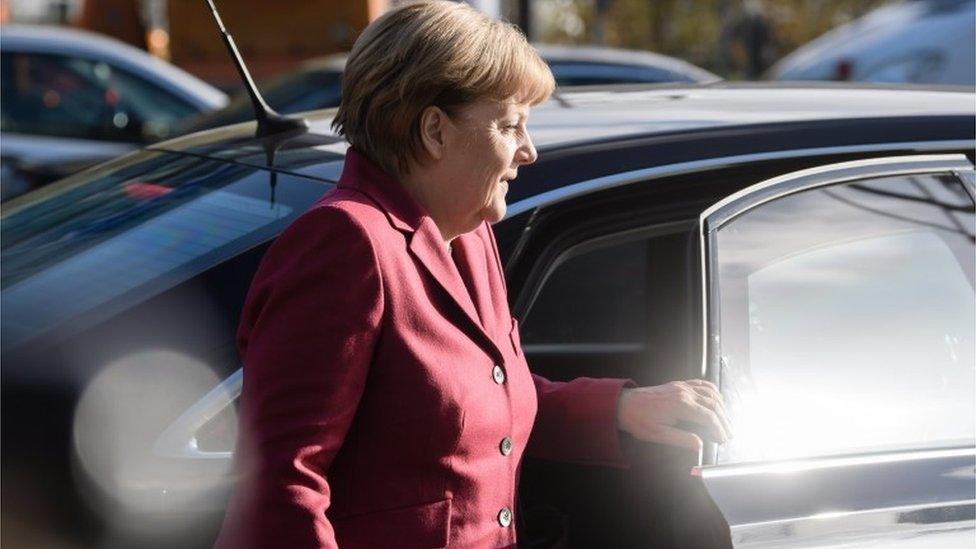
Coalition talks continued on Friday
Negotiations between German Chancellor Angela Merkel's conservatives, the free-market liberal FDP and the Greens to form a so-called Jamaica governing coalition are continuing - so far without agreement. The BBC's Jenny Hill says failure to reach a deal could herald the end of Mrs Merkel's leadership.
The German newspapers call it "political party poker" - and for Angela Merkel the stakes could not be higher.
She is weakened after her party's poor showing in September's general election.
Her only chance now of forming a government is an unprecedented alliance between three very different political groupings.
At 04:00 on Friday - after 15 hours of talks - Mrs Merkel admitted there was still no agreement between her Christian Democratic Union (CDU - itself riven by infighting), the Green party and the Free Democrats (FDP).
The parties remain deeply divided over tax, asylum and environmental policies.
The most bitter arguments have been over whether Syrian refugees should be allowed to bring family members to join them in Germany. Mrs Merkel's conservatives - mindful of the electoral success of the far-right Alternative for Germany (AfD), whose anti-immigrant rhetoric won it seats in the Bundestag for the first time - are cautious and want to extend a moratorium on so-called family reunions.
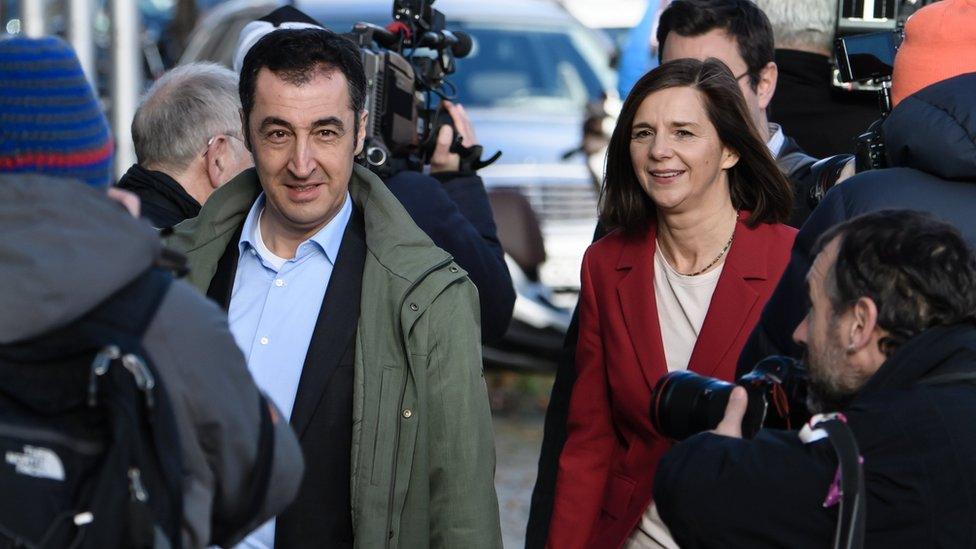
The Greens under Cem Özdemir (L) and Katrin Göring-Eckardt are at odds with Mrs Merkel's conservatives over refugees
But the Greens insist that asylum seekers integrate faster if their relatives are with them, and want a more relaxed approach.
Similar ideological divisions have also thus far prevented an agreement over the future of Germany's energy industry. The FDP is wary of pledges to significantly reduce power from coal, which puts them wildly at odds with the Greens' environmental priorities.
Of course much of what is happening now, the last-minute drama, is theatre. The parties must demonstrate to their support bases that they won't willingly sacrifice their principles for a shot at power.
But every one of the negotiators who stumbled, bleary-eyed, out of the latest marathon talks knows that, if they fail now, Germany will probably have to hold a fresh election.
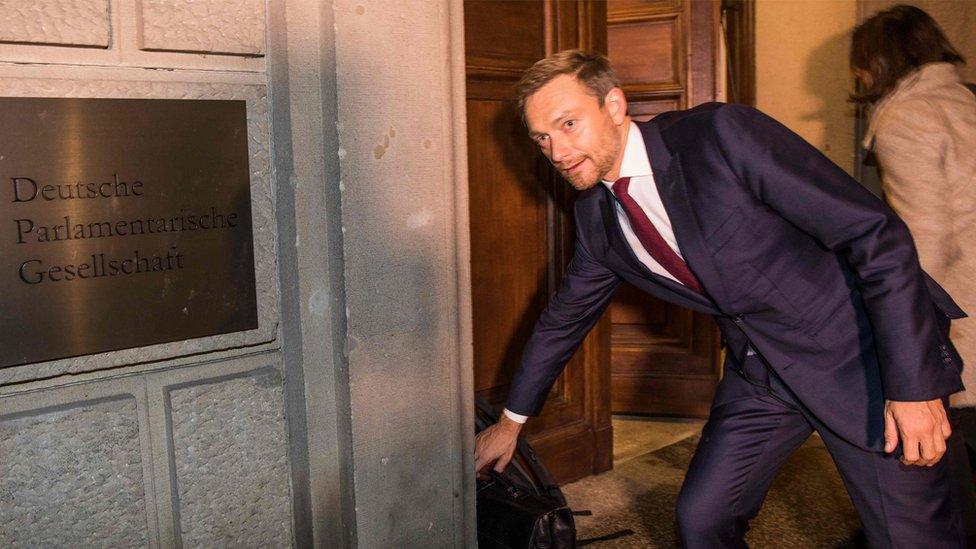
Christian Lindner's Free Democrats are wary of pledges to reduce coal use
More than anyone else perhaps, Mrs Merkel is keenly aware of what that might mean. Current opinion polls suggest that her conservatives might come off even worse next time round.
There's a good chance that her party - already casting about for a successor - might not allow Mrs Merkel to lead them into such a campaign. The chancellor, who has built a reputation worldwide for her ability to negotiate compromises, must now forge the deal of her political life.

- Published25 September 2017
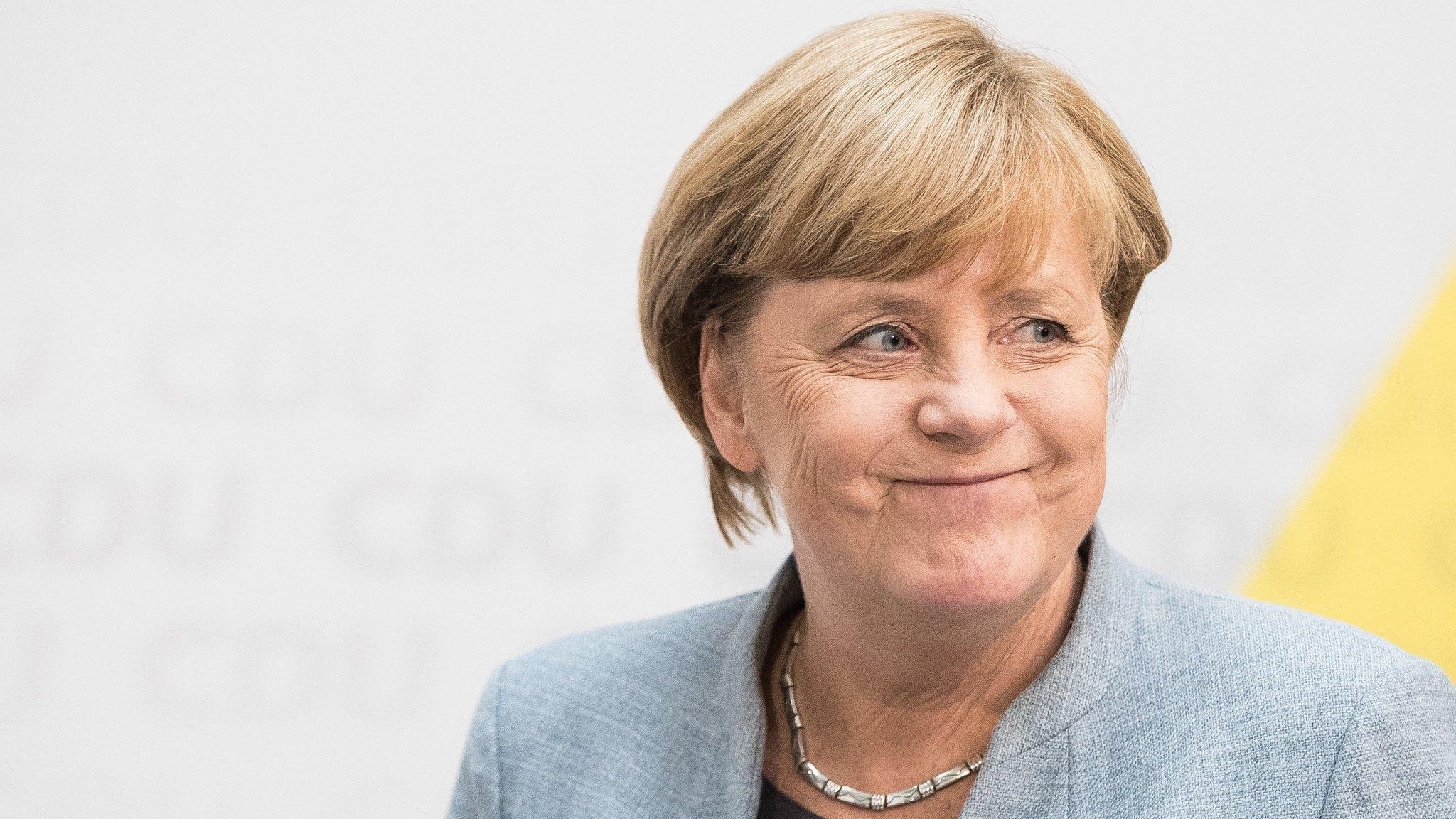
- Published25 September 2017
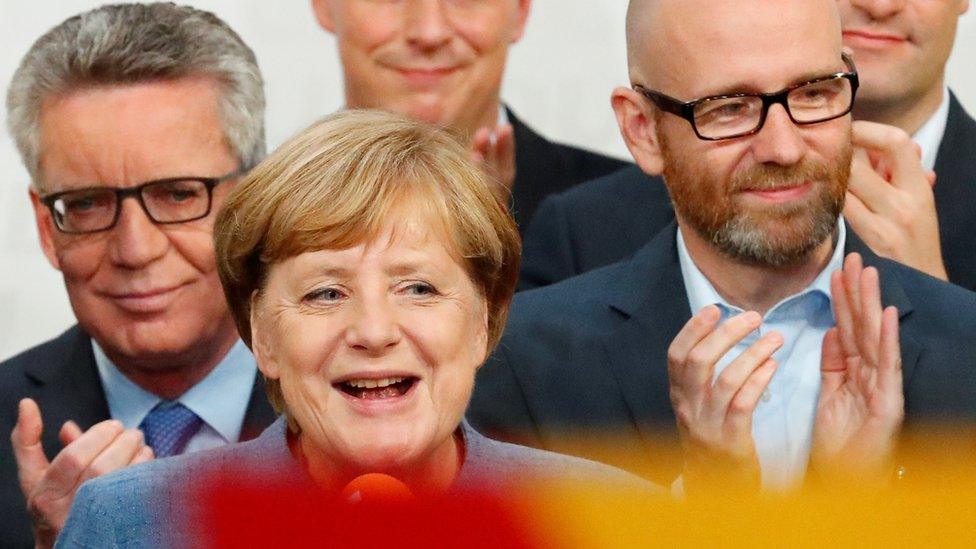
- Published26 September 2017
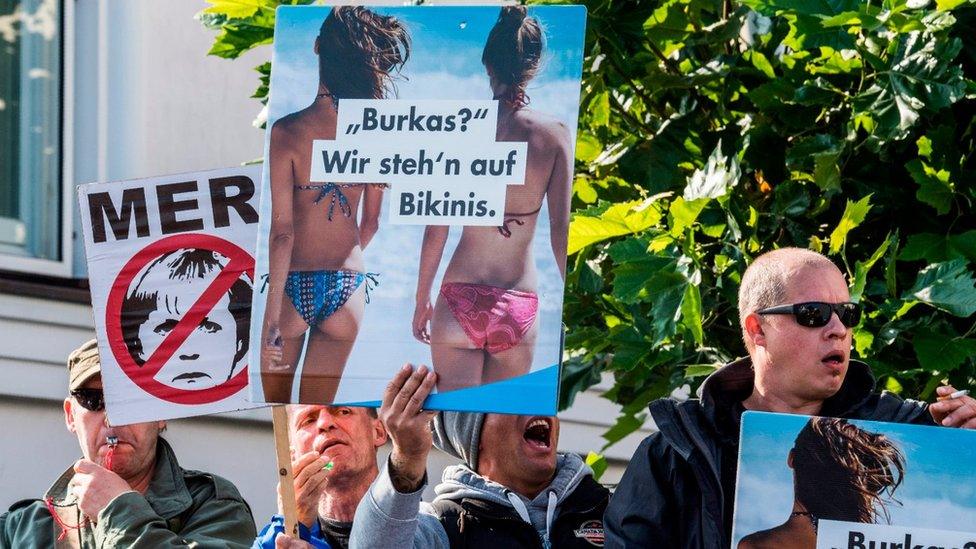
- Published11 February 2020
